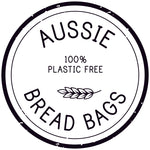You may or may not have heard the term before – sustainable farming.
Or you might have heard of one popular and very close relative of sustainable farming, called organic farming.
Yes, these two are similar, and share many common methods, but there are some significant differences.
Let’s look at why and how.
What is Sustainable Farming?
Sustainable farming is a system of agriculture that focuses on three main objectives:
- A healthy environment
- Economically profitable production
- Social and economic equity of the business and processes
It’s a holistic approach that uses new technologies in land management, minimising soil depletion, compaction and salinity, and generally managing potentially negative impacts of farming processes.
Efficiency and effectiveness are the focus. The motto of sustainable farming is ‘farm smarter, not harder’. This underpins the whole approach.
Sustainable farming holistically looks beyond pure production of crops, to increasing the profitability of practices and future potential of the business that underpins the farm.

Source: Farmmanagement.pro
Sustainable Farming Practices
What are some sustainable farming practices? Restricting the amount of heavy farming equipment used and maintaining consistent patterns where heavy machinery is used to minimise negative impacts. These practices reduce the amount the soil is compacted, allowing higher oxygenation of the soil and higher moisture levels. In short, improving soil health.
Integrated pest management is another key practice of sustainable farming. It looks at the lifecycle and biology of pests, changing practices to minimise damage. Pesticides and the like are used sparingly and only when absolutely necessary.
Rotational farming or crop rotation and diversity practices are heavily relied on to support sustainable farming. This means growing a variety of crops on the one piece of land that help to improve soil health and reduce pests.
An example…. your lovely crop of carrots, leeks or white cabbage will dramatically deplete nitrogen in the soil, reducing the soil quality. After harvesting this crop, rather than just spreading fertiliser, you would plant a crop of beans or peas, or a cover crop of clover to replenish nitrogen in the soil. This can give you another profitable crop, while also maintaining the balance and health of the soil to maximise your income in the future.

Source: sustainability-times.com
How is this Different to Organic Farming?
Organic farming can be easily confused with sustainable farming and does use a lot of the principles and methods. But there is one big difference.
Organic farming has a narrower focus. It is a way of production that avoids the use of pesticides, fertilizers, genetically modified plants or organisms and the like. Examples are the use of methods that encourage balanced host/predator relationships to manage pests and using only natural, renewable resources in production processes.
While both practices aim to build and maintain healthy soils, biodiversity and reduce pollution, organic farming is less focused on the underlying business. Less emphasis is placed on profitability and efficiency, with more emphasis on practices used and reducing environmental impacts. This is generally why organic products tend to be a premium price.

Source: researchleap.com
Why Sustainable Farming?
Sustainable farming takes a wider lens view to include economic and social sustainability of farming, as well as the environment. It aims to ensure equity is maintained, social impact is positive and ongoing, affordability of products is high and that the systems and methods are driven by a future focus.
At the end, it’s all about sustainability into the future for the farmer. Securing a future for our farming industries. It’s about farming smarter, not harder.
